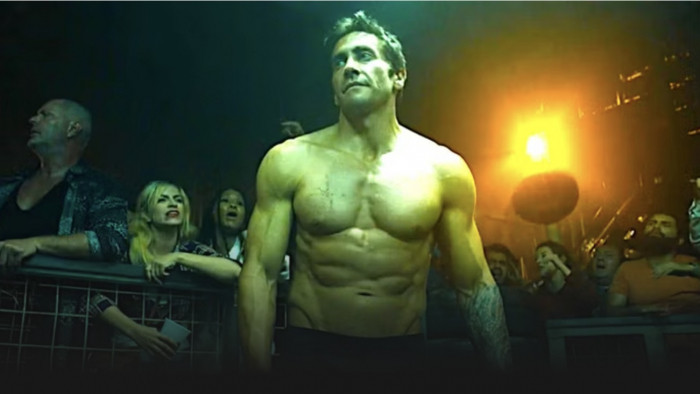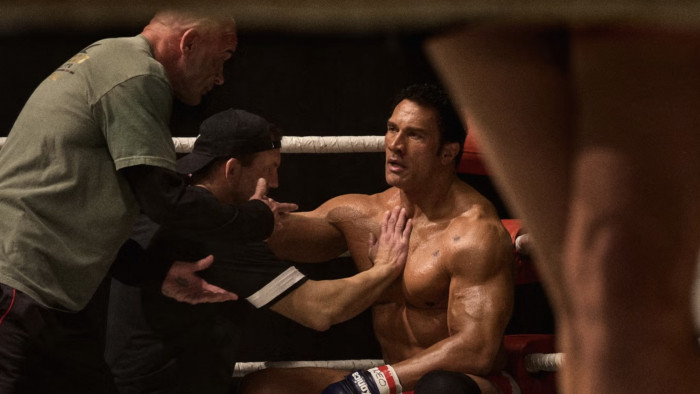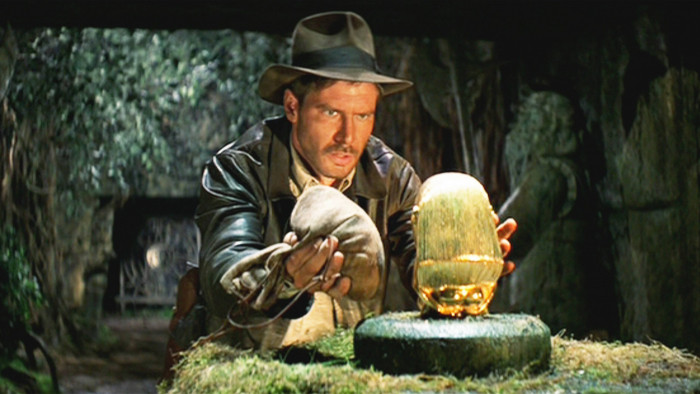The ‘all-swearing eye’ is about to bring us a very different Doctor Who. Peter Capaldi chats fanboys and fanfare with ShortList's Andrew Lowry
He may not bestride the Hollywood hills (not yet, anyway), but over the past 30 years, Peter Capaldi has steadily become one of Britain’s best-loved actors. The 56-year-old has done everything from play a transvestite on Prime Suspect to a stuffy academic on Peep Show to a Songs Of Praise presenter on The Vicar Of Dibley. Nine years ago, however, he wowed the nation – and won the hearts of swearing fans – with the debut of his famously abrasive spin doctor Malcolm Tucker in Armando Iannucci’s masterpiece The Thick Of It. He’s the definition of the 20-year ‘overnight success.’
Now, though, not content with redefining insults – and annoying Alastair Campbell into the bargain – he’s been awarded one of British TV’s most cherished berths: the leading role on global juggernaut Doctor Who. As he took time out from shooting the series, ShortList sat down with the man to hear about about hanging from wires, being a geek and his trip to the Oscars...
AND ENSURE YOU CHECK OUT THE WORLD'S TOUGHEST DOCTOR WHO QUIZ BY CLICKING HERE
You have said you were into Doctor Who growing up – how big a fan were you?
Doctor Who was part of my upbringing in the Sixties, with The Beatles and Sunday Night At The London Palladium and school milk and bronchitis. It’s part of me. I had a huge collection of books and autographs and pictures, but when you reach the age of 17 or 18, you move on and discover sex and drugs and rock’n’roll. I’m ashamed to say I had a kind of bonfire of the vanities. I was quite a major geek, I had a huge collection of wonderful stuff, but I threw it all away to go and drink lager and eat curries. That was silly, wasn’t it?
The Doctor isn’t a role the BBC would give to just anybody – what was the casting process like?
Early last year, Mark Gatiss made a Doctor Who drama called An Adventure In Time And Space and he invited me to the set. I went down, I saw the old Tardis and met all the actors, got my photo taken and all that. And Mark said to me, “How would you feel about being Doctor Who?” I said I didn’t really know, and that I thought that ship had sailed. He just said back, “Oh, I don’t know.” I thought that was an odd question to be asked, but I didn’t like to think that it was in any way relevant, and perhaps it wasn’t. I haven’t talked to him about it, but I suspect they might have been checking me out.
What came next?
Later, I got a call from my agent asking if I would go and talk to them about it, so I went in and auditioned. It took a long time to get everybody that needed to be there in the same room, because I was in Prague doing The Three Musketeers. Steven Moffat wrote a specific scene for this Doctor, so I did that. It was difficult to get a place where nobody could find us – I think they’d been rumbled the time before with Matt Smith, so we did it at Steven’s house. I have to say, when I did it, I thought I’d missed the target.
Clearly not. How did you find out you’d got the part?
I was back in Prague when they called, and I was dressed as Cardinal Richelieu. We were shooting and I was torturing someone, or something – when I got to my phone, I had all these missed messages. I finally got on the phone to my agent and she said, “Hello Doctor…” and I couldn’t tell anyone. I had to just stand in a corner and scream, and then I was walking around Prague singing the Doctor Who theme tune to myself.
You’re an experienced actor, but the work rate on Doctor Who is on a whole other level. Were you ready for the sacrifices?
I don’t think I’m going to go mental. I had my going mental years, and I kept them under wraps. I like getting on with the work, and it’s extremely challenging – at the moment we’re on the eighth consecutive week of filming, and it’s been going on since January. You go in and you have to find new ways of making it all work, and sparkle and twinkle, and I enjoy that – but it’s not like I’m sitting wishing I could buy a Ferrari, or get into this or that club. My life is fairly in place and I’m not going to go off the rails. It would be unbecoming for a man of my age.
How have you been finding the physical side of the role? No offence, but you’ve a few years on your predecessor…
I took Matt Smith to lunch before we started and he came in on crutches. I said, “What happened to you, mate?” and he said “It’s this show, it’s this show…” I was just – he’s younger than me, what am I going to do? But it’s been fine, I try to keep myself fit and healthy and I enjoy it. I’ve done a lot of running up and down corridors – I don’t want to be an old Doctor just standing in the corner with the young people doing all the action for me. It’s great, you don’t have to do any exercise because you do a lot at work during the day.
Have you had a favourite stunt?
Funnily enough, the other day I was on wires falling through the air – well, skydiving. People kept worrying about me, asking if I was OK. I was loving it, I didn’t want to get down – it was like being nine, because you don’t normally get to play Doctor Who and Superman at the same time. How many other guys get a chance to do that?
You’re known for darker roles – have you had to rein it in for what’s essentially a kids’ show?
I was laughing the other day because I used to do voiceovers – I say I used to, I’m not doing it at the minute because I’m doing this all the time. I was doing one for butter and they said, “Can you be a little less sinister?” So that’s how far it’s gone. I’ve gone from an amiable geek in my early films to a sinister butter salesman.
Why do you think Doctor Who has endured?
It’s a mystery. I have lots of theories. To me, it’s a fairy tale. It embodies some key human desires – the desire for people to escape when their life is crappy. When things are going wrong, it would be very nice if you had a blue box you could use to disappear to another world. People love monsters, as well. There are very few shows with monsters in them, surprisingly – people like men in rubber suits. But there’s also something melancholic at the centre of it, I don’t quite know what it is. There’s a sense of mortality to it – the constant death and rebirth engages people, I think. Rebirth and rubber monsters. That would be a good title for a book…
You’ve done some directing in the past – would you be tempted to direct an episode?
No, it’s so challenging for the directors. I was interested in that kind of world for fun, and it’s very good for actors to do it so you can learn about the pressures directors are under. When I see what they have to do, I simply couldn’t do it – you need a technical skill that’s way beyond me. You have to handle the day-to-day running of the set, all the pressure, how to spend the money wisely, the time management – I couldn’t do it.
You’re very modest – after all, a short film you directed in 1994 (Franz Kafka’s It’s A Wonderful Life) won an Oscar.
I got lucky – that was when I did something outside the pressures of big money or TV, it was just a short film we made for no money. There was nobody saying, “This is costing $12m, it has to be this way or that way.” We knew it would never be that simple again.
Still, a trip to the Oscars must have been nice…
I didn’t know there were Oscars for short films, but there you are – there were. It was a big surprise. I liked directing, but, really, it’s a big job. The things I’ve directed have all been quite modest. The ceremony itself was all a blur. It was like a drug. You get up on that stage and look down and think, “There’s a bloke who looks like Arnold Schwarzenegger, there’s a bloke who looks like Steve Martin, there’s a bloke who looks like Tom Hanks,” and then you realise it is Arnold Schwarzenegger, it is Steve Martin, it is Tom Hanks. I felt I wasn’t ready for it – I wasn’t a director. It confused people, because I’m an actor really. But I had a go at this other thing, and it was recognised in this very dramatic way – I wasn’t waiting with a stack of scripts or anything like that. But it was a blast.
The Doctor isn’t the only iconic role you’ve had – Malcolm Tucker is up with David Brent in the annals of millennial comedy. Did you expect The Thick Of It to resonate the way it did?
None of us knew it would take off in that way. It was one of those jobs where, had I been 10 years younger, I may not have had the flint about me – I may not have been knocked around enough by life to give it the sort of attack it needed, to understand the highs and lows of life. It was a great gig. Of course, people stop me and ask me to tell them to eff off, so I shout at them on demand. I was so lucky to do Malcolm – I never thought for a minute something else as big would come along.
You shared a memorable scene in In The Loop with James Gandolfini, which is primarily made up of threats. What memories do you have of him?
I was a huge fan of his, so to find myself in a rehearsal room with James was exhilarating and terrifying. What you see in the film is distilled from a couple of days of rehearsals where we really were arguing – we improvised a lot of intense arguments all day long. To find yourself doing heated exchanges with Tony Soprano all day was quite something. But I had to stop myself from being a fanboy – you have to turn that off and just be Malcolm. He was the most gracious of men. When we were in New York, people would appear and ask for photos, and he dealt with it with such grace and elegance. I really admired that – it’s a lovely thing for somebody to be so successful and to turn that outwards. I always think of him.
Finally, what do you think Malcolm Tucker would make of Doctor Who?
He wouldn’t have a clue what was going on. But if he could use it for an insult for someone, he definitely would.
Doctor Who returns on 23 Aug on BBC One
(Images: Ray Burmiston/BBC)
Latest
Related Reviews and Shortlists










